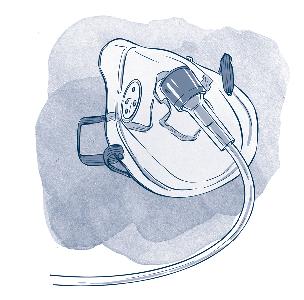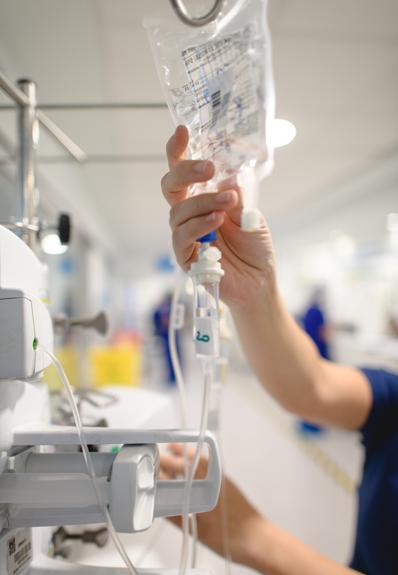
3 minute read
We are not heroes, we are committed professionals
When you are the patient you feel vulnerable
claudia escobar Nurse Bupa Santiago Hospital
A week before I had obvious symptoms I had backache, but I thought it was because I had been moving patients around. However, that evening the doctor checked me over and found a noise on my lungs. SANTIAGO — CHILE
When you are the patient you feel vulnerable. I was one of the first people to be tested. The scan showed nothing and the pcr test was negative. A week later I felt terrible, shivering and with a headache. I took my temperature in the afternoon and I had a fever. I was taken off the shift immediately. I felt bad abandoning the team, because it meant they would have to work harder.
They took me to the medical centre, but the doctor checked me over and sent me back to emergency for an x-ray because my pulse was very high. I had to be admitted by my own team as a patient.
Once I had been assessed, I went home. I live with my parents. I shut myself in my room and waited for the results of the pcr test. I was one of the first people to become ill, and I chose to stay at home. The second pcr test was also negative, but I still had a fever. I had a fever for eleven days. I felt really ill and my parents decided to take me to the emergency department again. That day I got up to have a shower and couldn’t even manage that. I was breathless and found it hard to breathe. I felt like an old person even though I didn’t smoke and didn’t have any other illnesses.
My colleague Bartolomé admitted me. That day Doctor Vargas saw me. She took me for a scan herself, which showed that my lungs were badly affected. I heard them outside the cubicle saying: Oh my, Claudia is really ill. They put me on oxygen and I was in hospital for a week. I lost five kilos because I had no appetite. I was off work for a month. My family were really worried. My mother looked after me. Thankfully, none of them got sick, not even my brother.
I went back ready to fight the pandemic and empathise with the patients, give them everything they needed, especially someone by their side and someone to talk to. Because the person in that cubicle is completely lost, lost in time and space. The disease means you have to be alone. I lived through it. �
I remember how lonely the patients felt
claudia collao Nurse Bupa Santiago Hospital
Before the pandemic, I had always worked in clinical risk, which was mainly about adverse events in healthcare and preventing and monitoring the occurrence of these. I have been a nurse since 2001 and have worked in a lot of healthcare settings, various intensive care units and lots of different hospitals. I am passionate about working directly with patients. Working in quality, on the other hand, is about looking in from above, watching what is going on. That is why I wanted to go back to shift work so I could work more closely in health in the pandemic. It was Carla, the nursing director, who realised I wanted to have a more active role and gave me the opportunity to take on a new position that was available at the clinic, that of resident nurse, just when we had entered the peak of the pandemic. I talked about it with my family, who didn’t like it much. My husband said: You will be more exposed to the disease, but if it’s what you want, you should do it.











